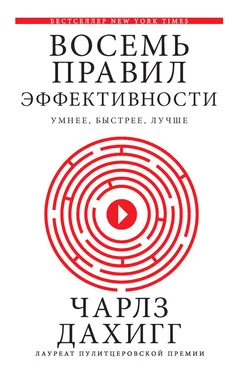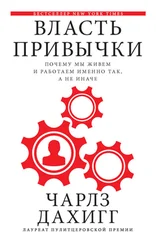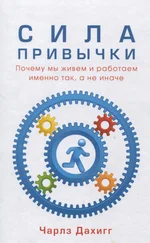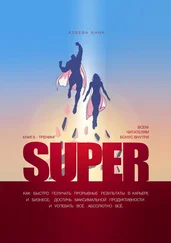Jessica L. Buck, Elizabeth McInnis, Casey Randolph, The New Frontier of Education: The Impact of Smartphone Technology in the Classroom, American Society for Engineering Education, 2013 ASEE Southeast Section Conference; Neal Lathia et al., «Smartphones for Large-Scale Behavior Change Interventions», IEEE Pervasive Computing 3 (2013): 66–73; «Sites That Help You Track Your Spending and Saving», Money Counts: Young Adults and Financial Literacy, NPR, 18/05/2011; Shafiq Qaadri, «Meet a Doctor Who Uses a Digital Health Tracker and Thinks You Should Too», The Globe and Mail, 4/09/2014; Claire Cain Miller, «Collecting Data on a Good Night’s Sleep», The New York Times, 10/03/2014; Steven Beasley, Annie Conway, «Digital Media in Everyday Life: A Snapshot of Devices, Behaviors, and Attitudes», Museum of Science and Industry, Chicago, 2011; Adam Tanner, «The Web Cookie Is Dying. Here’s the Creepier Technology That Comes Next», Forbes, 17/06/2013, http://www.forbes.com/sites/adamtanner/2013/06/17/the-web-cookie-is-dying-heres-the-creepier-technology-that-comesnext/.
Дополнительные сведения об информационной перегрузке и информационной слепоте изложены в следующих публикациях: Martin J. Eppler, Jeanne Mengis, «The Concept of Information Overload: A Review of Literature from Organization Science, Accounting, Marketing, MIS, and Related Disciplines», The Information Society 20, № 5 (2004): 325-44; Pamela Karr-Wisniewski, Ying Lu, «When More Is Too Much: Operationalizing Technology Overload and Exploring Its Impact on Knowledge Worker Productivity», Computers in Human Behavior 26, № 5 (2010): 1061-72; Joseph M. Kayany, «Information Overload and Information Myths», Itera, n.d., http://www.itera.org/wordpress/wp-content/uploads/2012/09/ITERA12_Paper15.pdf; Marta Sinclair, Neal M. Ashkanasy, «Intuition Myth or a Decision-Making Tool?», Management Learning 36, № 3 (2005): 353-70.
Термин «снежная слепота» также может означать ожог конъюнктивы и роговой оболочки глаза ультрафиолетовыми лучами солнца.
Наиболее популярный пенсионный план (накопительный пенсионный счет) в США. Представляет собой льготный план, согласно которому сотрудники могут направить часть своей зарплаты в пенсионную программу, причем выплата подоходного налога с этой части зарплаты будет отложена. Работодатели, предлагающие пенсионный план 401 (k), могут осуществлять взносы от имени своих сотрудников.
Sheena S. Iyengar, Gur Huberman, Wei Jiang, «How Much Choice Is Too Much? Contributions to 401(k) Retirement Plans», Pension Design and Structure: New Lessons from Behavioral Finance (Philadelphia: Pension Research Council, 2004): 83–95.
В электронном письме, полученном в ответ на заданные вопросы, один из авторов статьи, Такер Куман, писал: «Результаты анализа показали, что, при прочих равных, добавление в список очередного десятка новых фондов сопровождалось снижением доли сотрудников, изъявивших желание принять участие в программе, на 1,5–2% (максимальное количество – 75 % – было зафиксировано при наличии двух фондов на выбор)… При увеличении количества вариантов снижение доли записавшихся в программу 401 (к) только усугублялось. Если вы посмотрите на график [рис. 5–2 в нашей статье], отражающий зависимость количества записавшихся от количества предложенных фондов, вы заметите более резкое снижение доли желающих при наличии более 31 фонда на выбор».
Jeanne Mengis, Martin J. Eppler, «Seeing Versus Arguing the Moderating Role of Collaborative Visualization in Team Knowledge Integration», Journal of Universal Knowledge Management 1, № 3 (2006): 151-62; Martin J. Eppler, Jeanne Mengis, «The Concept of Information Overload: A Review of Literature from Organization Science, Accounting, Marketing, MIS, and Related Disciplines», The Information Society 20, № 5 (2004): 325-44.
Fergus I. M. Craik, Endel Tulving, «Depth of Processing and the Retention of Words in Episodic Memory», Journal of Experimental Psychology: General 104, № 3 (1975): 268; Monique Ernst, Martin P. Paulus, «Neurobiology of Decision Making: A Selective Review from a Neurocognitive and Clinical Perspective», Biological Psychiatry 58, № 8 (2005): 597–604; Ming Hsu et al., «Neural Systems Responding to Degrees of Uncertainty in Human Decision-Making», Science 310, № 5754 (2005): 1680-83.
Букв .: строительные леса, подмостки.
Более подробную информацию о процессе принятия решений как одном из аспектов скаффолдинга и когнитивной деятельности см.: Gerd Gigerenzer, Wolfgang Gaissmaier, «Heuristic Decision Making», Annual Review of Psychology 62 (2011): 451-82; Laurence T. Maloney, Julia Trommershäuser, Michael S. Landy, «Questions Without Words: A Comparison Between Decision Making Under Risk and Movement Planning Under Risk», Integrated Models of Cognitive Systems (2007): 297–313; Wayne Winston, Decision Making Under Uncertainty (Ithaca, N.Y.: Palisade Corporation, 1999); Eric J. Johnson, Elke U. Weber, «Mindful Judgment and Decision Making», Annual Review of Psychology 60 (2009): 53; Kai Pata, Erno Lehtinen, Tago Sarapuu, «Inter-Relations of Tutor’s and Peers’ Scaffolding and Decision-Making Discourse Acts», Instructional Science 34, № 4 (2006): 313-41; Priscilla Wohlstetter, Amanda Datnow, Vicki Park, «Creating a System for Data-Driven Decision Making: Applying the Principal-Agent Framework», School Effectiveness and School Improvement 19, № 3 (2008): 239-59; Penelope L. Peterson, Michelle A. Comeaux, «Teachers’ Schemata for Classroom Events: The Mental Scaffolding of Teachers’ Thinking During Classroom Instruction», Teaching and Teacher Education 3, № 4 (1987): 319-31; Darrell A. Worthy et al., «With Age Comes Wisdom: Decision Making in Younger and Older Adults», Psychological Science 22, № 11 (2011): 1375-80; Pat Croskerry, «Cognitive Forcing Strategies in Clinical Decisionmaking», Annals of Emergency Medicine 41, № 1 (2003): 110-20; Brian J. Reiser, «Scaffolding Complex Learning: The Mechanisms of Structuring and Problematizing Student Work», The Journal of the Learning Sciences 13, № 3 (2004): 273–304; Robert Clowes, Anthony F. Morse, «Scaffolding Cognition with Words», in Proceedings of the Fifth International Workshop on Epigenetic Robotics: Modeling Cognitive Development in Robotic Systems (Lund, Sweden: Lund University Cognitive Studies, 2005), 101-5.
Читать дальше
Конец ознакомительного отрывка
Купить книгу












